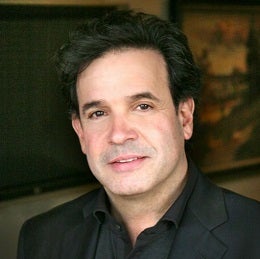Our People

Rudolph Tanzi, PhD
Rudolph Tanzi, PhD, is the vice chair of neurology and director of the Genetics and Aging Research Unit at Massachusetts General Hospital. He also serves as the Joseph P. and Rose F. Kennedy Professor of Neurology at Harvard Medical School.
Dr. Tanzi received his BS in microbiology and BA in history at the University of Rochester in 1980 and his PhD in neurobiology at Harvard Medical School in 1990. In his research achievements, Dr. Tanzi served on the team that was the first to find a disease gene (Huntington disease) using human genetic markers, helping to launch the field of neurogenetics. He later co-discovered all three early-onset familial Alzheimer’s disease (AD) genes and identified several others as leader of the Alzheimer’s Genome Project supported by the Cure Alzheimer’s Fund, for which Dr. Tanzi also serves as chair of the research consortium. He co-discovered the Wilson disease gene and several other neurological disease genes.
Most recently, he and his team used Alzheimer’s genes and human stem cells to create what the New York Times coined, “Alzheimer’s-in-a-Dish.” This is a three-dimensional human stem cell-derived neural culture system that is considered to be the first true model of Alzheimer’s disease, recapitulating both pathological hallmarks of Alzheimer’s disease: plaques and tangles. The model has made drug screening for Alzheimer’s disease 10 times cheaper and 10 times faster. Dr. Tanzi has developed novel therapies for AD, including gamma secretase modulators and metal chaperones (PBT; Prana) aimed at lowering plaque and tangle pathology. Both have been entered into clinical trials for Alzheimer’s patients. Dr. Tanzi is also very active in the areas of integrative medicine and applications to brain health. In this regard, Dr. Tanzi co-directs the Self-Directed Biological Transformation Initiative (SBTI), aimed at exploring and quantifying the effects of lifestyle interventions on neuroplasticity and epigenetics.
Dr. Tanzi has published over 500 research papers and has received the highest awards in his field, including the Metropolitan Life Foundation Award, Potamkin Prize, Ronald Reagan Award, Silver Innovator Award, and many others. He was named by GQ Magazine as a Rock Star of Science. He was named to TIME magazine’s list of the 100 Most Influential People in the World (2015), and received the Smithsonian American Ingenuity Award, the top national award for invention and innovation. He coauthored the popular trade book Decoding Darkness, New York Times bestseller Super Brain, and international bestseller Super Genes.
